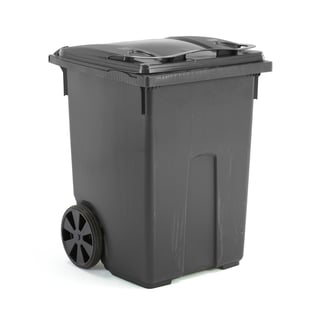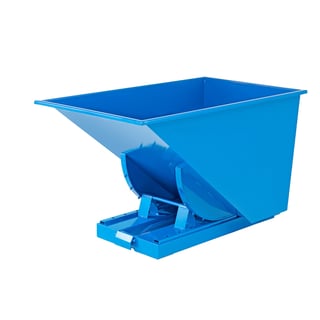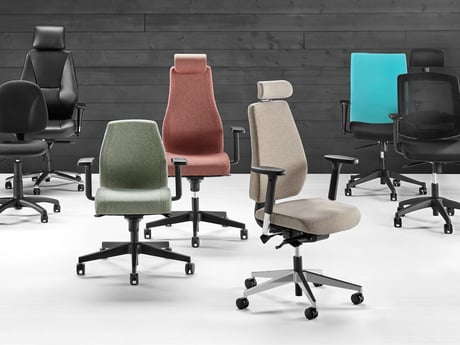
AJ Furniture Factory: Leading the Way in Sustainable Manufacturing
Join us as we explore AJFF's innovative approach to manufacturing, including its pioneering use of wood and solar panels, and its relentless pursuit of sustainability in every aspect of production.

"We've installed 100 kW solar panels, with plans to expand by 500 kW soon for better energy efficiency," Marjańska says.
This move reduced purchased electricity by 6.6% from 2021 to 2022, with self-produced electricity making up 3.4% of total consumption in 2022. As a result, greenhouse gas emissions from heating and electricity dropped by 6.6%.
Making Use of Sawdust
Just a stone's throw away from the factory and alongside the solar panels, there's a large silo connected to the building. Here, sawdust from the manufacturing process, including leftover chipboard parts, is collected. This sawdust is then pressed into pellets, ready to be burned for energy.


"We recycle a large portion of the sawdust to heat the facility, providing warmth and hot water in winter, and hot water in summer," explains Agnieszka.
Any remaining sawdust is sent back to the chipboard manufacturer to be used in making new boards.
Dealing with Plastic
At AJFF, the focus indoors shifts towards minimising plastic use. In 2022, several projects aimed to cut down waste, resulting in almost 60% of it being recycled.
The aim is to reduce plastic usage as much as possible. However, it remains a challenge. Currently, efforts are focused on carefully separating and recycling leftover plastic or using it as efficiently as possible.

Agnieszka highlights the efficiency of a robot wrapping pallets. Machine wrapping requires less plastic, as it stretches the film tighter and reduces the risk of goods damage.
A pallet wrapped by a machine requires less plastic because it can stretch the film tighter and more compactly around the pallet. This not only reduces the risk of goods damage but also minimizes the amount of plastic needed.
Moving Away from Styrofoam
Styrofoam, a commonly used packaging material known for its shock-absorbing properties and lightweight nature, is hard to ignore. However, there's a clear goal in sight.
To optimise packaging efficiency, AJFF purchases ready-made and custom-cut styrofoam pieces. Any leftover styrofoam, unfit for reuse, is returned to the manufacturer for recycling into new material.


"In our product packaging, styrofoam is prevalent. With 25-30 trucks leaving the factory weekly, styrofoam usage is substantial. However, our short-term aim is to halve usage, with the long-term goal of eliminating it entirely," explains Agnieszka.
As an alternative, the QBUS series packaging now relies on honeycomb, crafted from 100% recycled paper. This shift eliminates the need for styrofoam entirely, with honeycomb or corrugated cardboard filling the void when necessary.

Emphasising Waste Sorting
At various points across the factory, waste sorting stations are strategically positioned to accommodate both small and large waste items. Depending on the department, specialized containers are designated for specific waste types generated by respective machines or processes. Everything from cardboard and packaging plastic to metal and wood is earmarked for recycling wherever feasible.
"For handling larger volumes of paper and plastic, we've installed dedicated machines that are filled throughout the day. Once full, these machines compress the material into compact cubes, significantly reducing the space required compared to loose accumulation," explains Agnieszka.
This approach not only maximises space efficiency but also streamlines transportation for recycling purposes.
Promoting Circular Wood Practices
In 2021, AJ Products initiated a pallet project in collaboration with AJFF in Poland. The aim was to enhance pallet quality, extending their lifespan and circulation. Pallet sizes were meticulously adjusted to suit product specifications and usage requirements. Any incompatible pallet sizes are redirected from the Halmstad warehouse to the Polish factory for repurposing. This project has not only elevated pallet quality but also minimized wood waste.
Looking ahead, Agnieszka emphasises the importance of continual development and improvement in AJFF's environmental efforts. While complete exclusion of packaging materials may not always be feasible, adopting a circular mindset is essential. Every reduction in electricity purchases contributes to a more responsible production approach.












